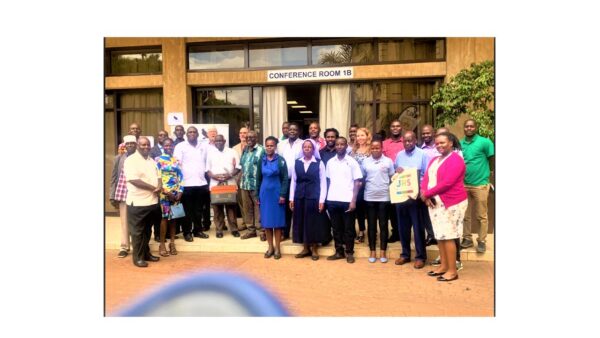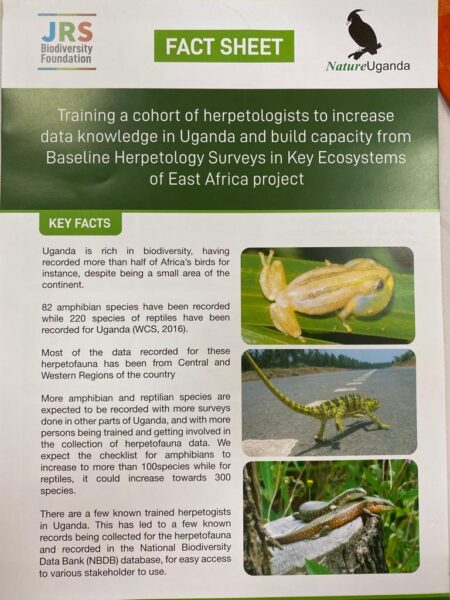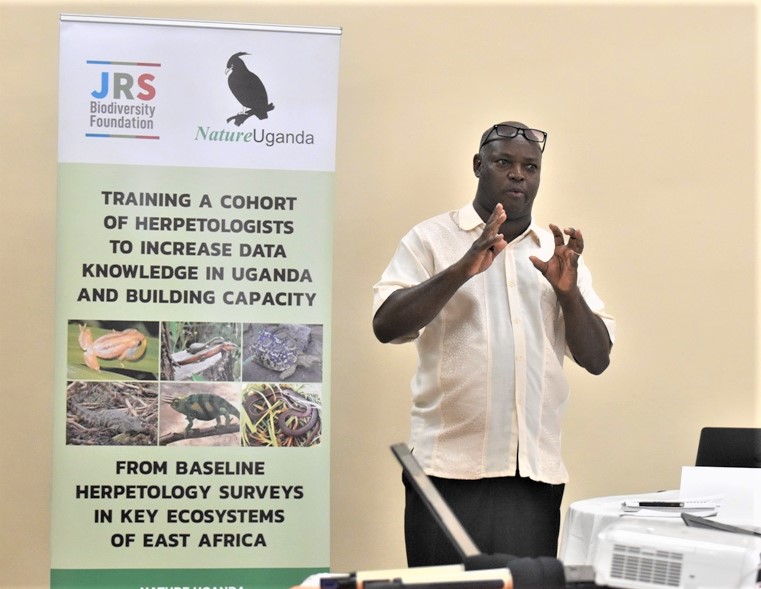JRS grantee NatureUganda recently invited over 30 Ugandan stakeholders including government and wildlife authorities, six partner universities, conservationists and members of the press to mark the launch of their ambitious project Training a Cohort of Herpetologists to Increase Data Knowledge in Uganda – and Build Capacity for Baseline Herpetology Surveys in Key Ecosystems of East Africa.

The project aims to increase the number of trained experts and herpetologists to expand research in the varied habitats of Uganda, a megadiversity country. Over the next three years, Ugandan students and collaborators will participate in collecting and collating data from field surveys and other sources to publish up to 50,000 species records and make them accessible in the public domain. The field records will be collected from ten protected area sites across Uganda to fill existing distribution gaps. Data will then be entered into databases on openly accessible portals, such as the National Biodiversity Data Bank (NBDB) and the Global Biodiversity Information Facility (GBIF).
Attendees for the launch gather for a group photo.
JRS Executive Director, Matthew Cassetta, joined participants at this successful inaugural workshop, celebrating what Principal Investigator (PI) for the project, Mathias Behangana describes as the “first-time considerable funding has been granted for capacity building, research, data collection and dissemination on this critical group of animals/fauna in Uganda.”

Project Fact Sheet.

